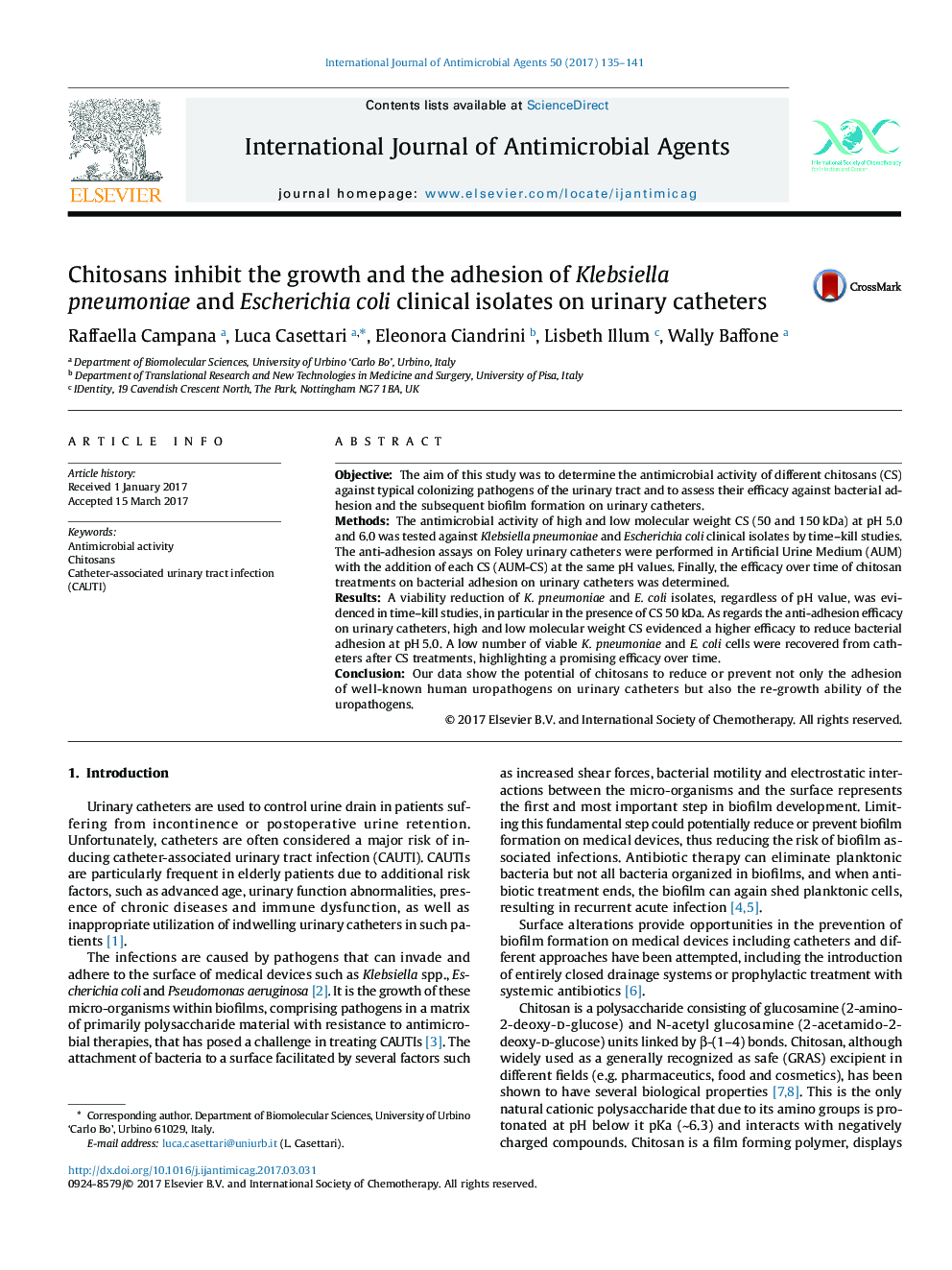| Article ID | Journal | Published Year | Pages | File Type |
|---|---|---|---|---|
| 5666931 | International Journal of Antimicrobial Agents | 2017 | 7 Pages |
â¢Chitosan solutions inhibit the growth and adhesion of human uropathogens.â¢The antimicrobial activity of chitosans increases when their MW and pH are decreased.
ObjectiveThe aim of this study was to determine the antimicrobial activity of different chitosans (CS) against typical colonizing pathogens of the urinary tract and to assess their efficacy against bacterial adhesion and the subsequent biofilm formation on urinary catheters.MethodsThe antimicrobial activity of high and low molecular weight CS (50 and 150âkDa) at pHâ5.0 and 6.0 was tested against Klebsiella pneumoniae and Escherichia coli clinical isolates by time-kill studies. The anti-adhesion assays on Foley urinary catheters were performed in Artificial Urine Medium (AUM) with the addition of each CS (AUM-CS) at the same pH values. Finally, the efficacy over time of chitosan treatments on bacterial adhesion on urinary catheters was determined.ResultsA viability reduction of K. pneumoniae and E. coli isolates, regardless of pH value, was evidenced in time-kill studies, in particular in the presence of CS 50âkDa. As regards the anti-adhesion efficacy on urinary catheters, high and low molecular weight CS evidenced a higher efficacy to reduce bacterial adhesion at pHâ5.0. A low number of viable K. pneumoniae and E. coli cells were recovered from catheters after CS treatments, highlighting a promising efficacy over time.ConclusionOur data show the potential of chitosans to reduce or prevent not only the adhesion of well-known human uropathogens on urinary catheters but also the re-growth ability of the uropathogens.
